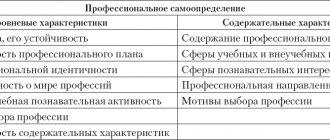Panic attacks are painful for a person. But despite this, rarely does anyone seek help on time, preferring to find advice on the Internet. On this topic in the modern Internet space you can find a lot of varied information, often contradictory. How not to drown in this sea of advice and recommendations? How to separate the wheat from the chaff and understand what will help you? How to overcome the panic fear that invariably accompanies any attack? We'll talk about this today.
Good afternoon, dear reader! The topic of panic attacks is becoming very fashionable today. They tend to both understate and exaggerate it.
The term panic attacks is used to describe everything from attacks of rapid heartbeat to serious somatic and psychiatric disorders.
Healers of various levels, from hereditary psychics to quite serious candidates of science, all as one promise a quick deliverance from such a complex problem.
Many techniques really help, but if you approach the topic responsibly, questions arise.
How can you tell if a patient is suffering from panic attacks?
And how not to confuse the accompanying symptoms with more complex diseases and disorders?
Why do panic attacks occur?
The cause is most often suppressed negative emotions and experiences.
However, as a rule, the events that cause them do not lie on the surface.
Therefore, it is difficult for a person himself, without the help of a psychotherapist, to discover the true cause of his suffering. And, having discovered, it is not easy to find a way to express them without damage to the psyche and physical health.
To competently work with emotions and feelings that arise in everyday life, I have the book “How to allow yourself strong experiences, emotions and feelings without destroying yourself and others.”
After reading this publication, you can learn to safely express your emotional state.
Remember that the occurrence of panic attacks is just one way in which suppressed emotions manifest themselves.
Without finding direct expression, “forbidden” emotions can manifest themselves after some time in the form of neuroses, sleep and eating disorders, and the appearance of phobias and fears.
Before we delve deeper into the psychological causes of panic attacks, let's take a closer look at their symptoms.
coping with stress
The first methods of dealing with stress were presented many years ago by adherents of NLP - neurolinguistic programming. Overcoming stress in such techniques is almost always based on physical sensations and switching attention (for example, the famous yoga breathing technique works on the same principle), the most important thing is to find 5 minutes of time and a secluded place (at least an office toilet) where you can quickly come into yourself.
Overcoming stress using the “4 steps” method is one of the most famous NLP techniques. Master:
Symptoms
In the medical literature, the diagnosis of “panic attacks” is almost never made. It is replaced by the abbreviation VSD, which translated from Russian into Russian means vegetative-vascular dystonia.
The first attack of a panic attack usually occurs spontaneously, for no apparent reason to the patient.
It is accompanied by rapid heartbeat, increased sweating, sometimes nausea and fainting.
There is a feeling of depersonalization (a feeling of the unreality of what is happening). Some clients describe this feeling as “as if the soul is being separated from the body.”
During an attack, a person suddenly realizes that he is mortal.
More precisely, as Woland said in the novel “The Master and Margarita,” “the worst thing is that he is suddenly mortal.”
The persistent thought that accompanies a panic attack is often the thought of death. The person feels like he is dying.
Succumbing to the influence of fear, he can call an ambulance or even the police, but he is not always able to explain his symptoms clearly enough. Medical assistance will most likely be limited to measuring ECG, blood pressure, and temperature. After making sure that everything is in order, the person is left alone with his fear.
When the first attack passes, the memories of it are so strong and dramatic that the patient begins to fear a repetition. And, as you know, what we fear is what we attract.
The more often the attacks appear, the more a person strengthens his belief that he is seriously ill, the end is near, and also that one of the attacks will sooner or later end in physical death.
Afraid of meeting his death alone, and also hoping for salvation, a person begins to fear leaving the house, visiting public places, or being alone. Purely practical inconveniences may be added to fears for your life.
During an attack, some may experience symptoms of vomiting, diarrhea, and fainting. Afraid of looking out of place in a given situation, a person refuses social life, preferring the walls of his home.
Often, without realizing the psychological nature of his illness, a person studies medical literature and performs in-depth medical examinations in order to detect and eliminate the danger. But in most cases, apart from the abbreviation VSD, nothing is achieved.
A completely natural question arises: what to do? Is there a secret to getting rid of the disease?
Treatment of panic attacks
Once again, before diagnosing panic attacks yourself, I recommend undergoing a medical examination, in particular visiting a cardiologist and endocrinologist.
After all, the symptoms of panic attacks can often be confused with disorders of the cardiovascular system or metabolism.
Once you are sure that there are no health problems, you can begin treatment with a psychotherapist. And remember that this problem can be solved.
It is possible to overcome unpleasant symptoms; the main thing is not to allow negative thoughts to take over your consciousness. So where to start?
Stages of treatment
There are many psychological reasons behind panic attacks. Each of them has its own individual story. Sometimes this is an unreasonable desire to always and everywhere be positive and an unconscious ban on experiencing “negative” emotions - sadness, anger, aggression, etc.
Sometimes these are persistent questions with which our “true self” tries to get through that we have taken a wrong turn, and we drown out all channels to hear it, unconsciously unnecessarily straining ourselves. Sometimes it’s just the “inability to use” such a wonderful and cool tool as our psyche.
The appearance of panic attacks may indicate a more subtle and intricate mental organization. And, as you know, where it is thin, it breaks.
Therefore, there is no reason to scold and devalue yourself if it is difficult to cope with panic attacks on your own.
Urgent self-help
As an “emergency self-help”, during a panic attack, we can recommend breathing slowly for several minutes into a paper bag (this is a must!), pressed to the face. Something like this.
The carbon dioxide that a person exhales and then inhales from the bag enters the brain and signals it to calm down. Thanks to this, the intensity of the attack subsides.
However, it is possible to completely overcome panic attacks. This is possible when their cause is found and neutralized. Or, what happens more often, several reasons.
At the end of the article, I will give an interesting link to a review from a client with panic attacks and her wonderful journey, knowledge and tools with which she overcame not only panic attacks and fear of death, but also solved many psychological problems.
But let's look at the steps first.
Awareness and recording of your thoughts
It doesn't matter in what form it will take place. Whether you keep a written diary or record your thoughts on a voice recorder, write a book on the topic or a video message. The main thing is to clearly monitor your mental flows, especially thoughts related to the dying of the physical body.
During an attack, repeat the thought: “This is just an attack, I will live.” Often it is the confidence that such a condition does not lead to death that helps to calm down.
It is very useful to describe how the physical body feels at this moment. A detailed description will create a feeling of control over what is happening, which will significantly reduce the emotional component of stress.
Gradually, you will be able to see and realize how your thoughts affect your physical state.
And, therefore, having established control over your thoughts, you will gradually extend it to your body.
Breathing practices
During an attack, you may often feel like you are short of breath. No matter how much you want to breathe quickly, you need to consciously breathe slowly and deeply. Controlling your breathing will lower your heart rate and reduce your heart rate. For the brain, this is a signal that the danger is behind and there is no need to save you by panicked flight.
If it is possible to provide access to fresh air (fan, air conditioner, open window, access to a balcony or garden plot), then this must be done.
You need to inhale air through your nose and exhale through your mouth, similar to blowing out a candle. The more candles you can “blow out” in one entry, the easier it will be for you. It is optimal to blow out “five candles” at a time.
A stream of fresh air combined with breathing techniques can relieve an attack.
You can replace the breathing technique with singing (if, of course, it is appropriate in the situation in which you find yourself). Taking a deep breath, begin to sing, preferably loudly and with gestures. Don’t be afraid of “missing the mark”, the main thing is a general positive attitude.
Breathing techniques and singing are very effective in the first minutes of an attack. If you do everything correctly, then there is a chance that the attack will stop and not begin to develop.
Medication assistance
Before you can trace the very beginning, you can resort to light natural sedatives. Medications are not very effective in treating panic attacks, but they can still alleviate the current condition.
Perhaps I will repeat myself, but it is better to take medications with the knowledge of the attending physician.
Development of a system of personal rewards and punishments
Often people suffering from panic attacks limit their social activities. Returning to everyday life is often accompanied by anxiety. To overcome it, you must first differentiate vague anxiety by specific building blocks - small fears and concerns.
For example, you are afraid to travel long distances on public transport. Because there are strangers nearby and if things get bad, no one can help.
Try to look at the situation honestly and objectively. How likely is it that you will become ill during the trip? Are the people around you really so callous that they won’t come to your aid in an unpleasant situation? Etc.
Having looked at the situation objectively, the second step is the determination to return to normal everyday happy life.
Praise yourself for every step you take in this direction, even if it is insignificant in the eyes of others.
As for punishments, include among them those things that are unpleasant to do, although necessary. For example, general cleaning of the bathroom.
Religious motives
In esoteric literature, the experience of panic attacks is shrouded in mystical fog. Without going into details, I will say that the reading of prayers or chanting of mantras recommended in them really effectively helps relieve an attack or ease its course.
To use this method it is absolutely not necessary to belong to any religious movement. You can get acquainted with different options and choose the most suitable one for you, which does not contradict your traditions and worldview.
However, this method should not be contrasted with full-fledged psychotherapy.
Fulcrum
One woman who has a serious physical disorder and suffers from frequent fainting told me about a method that brings her back to life. As soon as she is visited by a feeling of depersonalization, she always places her hand on some solid object (the arm of a chair, the leg of a chair, a window sill) - whatever she manages to grab onto.
And, being in a transitional state of consciousness, she, like a thread, pulls herself into our world from oblivion.
The same method can be recommended during a panic attack. By switching your attention and receiving very real physical sensations (the coldness of the surface of the window sill, the smoothness of a chair, etc.) you remind yourself that you are alive.
Human reactions to different types of stress
› Stress theory ›
Types of stress are divided according to the degree of impact on the individual; each type can have both positive and negative effects.
A traumatic factor causes certain reactions on an emotional and physical level.
Stressful behavior depends on personal characteristics; each individual behaves differently in stressful and extreme conditions. Let's look at the basic issues of a person's response to stress.
What types of stress are there?
Stress appears when conditions that threaten the human body and psyche appear. There are the following types of negative expressions:
- Long-term traumatic stressor. The personality is critically affected by long-term emotional stress. This could be a protracted conflict with a manager, quarrels over living in the same territory, illness of a relative, or other reasons.
- Physiological trauma. In this case, the influence of external influences manifests itself. This group includes cold, heat, physical stress, and hunger. Types of reactions to physiological stress manifest themselves in the form of physical and moral fatigue, irritation, exhaustion and general weakness.
- Negative experiences associated with human relationships are called psychological trauma. It includes situations of responding to deception, betrayal, and betrayal.
- Extreme stress load. This group includes events that threaten human safety. Accidents, environmental disasters, crimes, serious illness, accident, war, forced emigration and other difficult living conditions.
- Information overload. Tension arises due to the influence of the information component; a person has great responsibility and is forced to make important decisions every day. This type of stressful experience is possible in a number of professions. For example, dispatchers, some managers, surgeons and others.
The traumatic factors described above cause certain types of reactions in people who are exposed to them. They have established symptoms and signs.
Types of reactions
Stress factors cause a number of emotional and physical reactions in the body.
Types of emotional reactions:
- aggression;
- regular attacks of anger;
- irritability for no reason;
- resentment, tearfulness, self-pity;
- panic attacks, feeling of fear;
- difficulty sleeping.
Emotions can change, prolonged experience has the most negative impact on the psyche, the state turns into depression, apathy, and symptoms of neurosis appear. Successful resolution of a short-term stressful situation relieves emotional manifestations, but some types of stress require the help of a specialist.
Types of physical reactions:
- headache;
- fatigue;
- chest pain;
- dry mouth;
- problems with the gastrointestinal tract;
- increased or decreased appetite;
- tics, stuttering.
If the emergency threat disappears, then the physiological manifestations return to normal. With prolonged stress factors, symptoms become chronic and diseases develop.
Personality characteristics and reactions
Types of response to a traumatic factor are purely individual and depend on the characteristics of the individual. Temperament, a person’s character, level of self-esteem and parental attitudes matter.
There are a number of studies that make a connection between temperament and types of reactions to a critical situation.
- People with a weak nervous system and melancholic temperament experience anxiety, neurotic anxiety, and severe fear during stressful events. They are prone to self-blame and panic, often they do not have the strength to fight. In many cases, insomnia and sleep problems begin.
- The choleric personality type produces the following set of reactions: anger, protest, aggressiveness. Angry feelings give rise to the development of stomach ulcers and hypertension. Choleric people are dependent on success, they take failures hard, they are very afraid of making a mistake.
- The phlegmatic type of temperament maintains self-control in tense situations, suppresses emotions, and ignores the problem. They tend to seize the problem, which brings their weight closer to a critical indicator, being in long-term trauma. Stress factors in phlegmatic people slow down mental activity, there is lethargy, and oversleeping.
- People with a predominant sanguine temperament react to stress with optimism, may protest, but are always confident in their own worth. Sanguine people have a strong nervous system, so they can easily cope with negative emotional stress.
The level of self-esteem plays an important role in the manifestation of emotional reactions during stress. Low self-esteem and lack of confidence in one’s capabilities increases the state of anxiety and panic during stressful life moments. There is evidence that negative self-esteem affects exam performance; students cannot cope with the exciting workload and receive low scores.
The types of reactions to stress are influenced by parental attitudes. Some psychologists argue that a person draws a script for behavior in the event of a traumatic factor from his parents.
The child absorbs parental examples, and then unconsciously repeats them in adulthood.
So, one person will silently swallow grievances under stress, another will resort to alcohol, a third will begin to look for a way to optimize. You can understand your life scenario with the help of a psychologist or with independent analysis.
Ways to respond to stress
People also differ in how they react to a stress factor. There are several categories of reactions.
- "Bunny Stress" In this case, the person passively experiences the traumatic situation. He does not have the strength to activate, he hides from problems.
- "Lion Stress" A person with this manifestation reacts violently, angrily and expressively to stressful events.
- "Ox Stress" The method implies a type of reaction at the limit of one’s mental, emotional and physical capabilities. Such a person can live and work for a long time in a traumatic situation.
A stress factor causes various emotional manifestations, they affect the physical and mental state of a person.
Psychologists note that negative stimuli can actually exist, for example, divorce, but they can also be far-fetched. Contrived situations include reactions to this or that behavior of others.
The stress reaction manifests itself depending on the personality type and parental attitudes. Characteristics and temperament influence the response.
Human reactions to various types of stress Link to main publication
Source: https://OStresse.ru/teoriya-stressa/reakcii-cheloveka-na-stress.html










